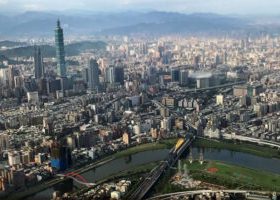THE HAGUE — Palestinian representatives on Monday asked judges at the UN’s Highest Court to declare Israel’s occupation of their territory illegal, saying their advisory opinion could contribute to a two-state solution and a lasting peace.
The requests came at the opening of a week of hearings at the International Court of Justice (ICJ) in The Hague. The UN General Assembly sought an advisory, or non-binding, opinion on the occupation in 2022. More than 50 states will present arguments through Feb. 26.
“We call on you to confirm that Israel’s presence in the occupied Palestinian territory is illegal,” Riad Mansour, the Palestinian representative to the United Nations, said in a speech in which his voice cracked, and he shed tears.
“A finding from this distinguished court… would contribute to bringing (occupation) to an immediate end, paving a way to a just and lasting peace,” he said. “A future in which no Palestinians and no Israelis are killed. A future in which two states live side by side in peace and security.”
The latest surge of violence in Gaza, promoted by the Oct.7 attacks in Israel by Hamas has complicated already deeply rooted grievances in the Middle East and damaged efforts towards finding a path to peace.
The ICJ’s 15-judge panel has been asked to review Israel’s “occupation, settlement and annexation … including measures aimed at altering the demographic composition, character and status of the Holy City of Jerusalem, and from its adoption of related discriminatory legislation and measures.”
Israel is not attending the hearings but sent a 5-page written statement published by the Court on Monday in which it said an advisory opinion would be “harmful” to attempts to resolve the conflict because the questions posed by the UN General Assembly were prejudiced.
The judges are expected to take roughly six months to issue an opinion on the request, which also asks them to consider the legal status of the occupation and its consequences.
Israel captured the West Bank, Gaza and East Jerusalem — areas of historic Palestine which the Palestinians want for a state — in a 1967 war and has since built settlements in the West Bank and steadily expanded them.
Israeli leaders have long disputed that the territories are formally occupied on the basis that they were captured from Jordan and Egypt during a war rather than from a sovereign Palestine.
The United Nations has since 1967 referred to the territories as occupied by Israel and demanded that Israeli forces withdraw, saying it is the only way to secure peace. Its 1967 resolution did not, however, specifically label the occupation as illegal.
While Israel has ignored legal opinions in the past, this one could increase political pressure over its war in Gaza, which has killed about 29,000 Palestinians, according to Gaza health officials, since Hamas attacked Israel on Oct. 7.
It withdrew from Gaza in 2005, but, along with neighboring Egypt, still controls its borders. It has also annexed East Jerusalem in a move not recognized by most countries.
The hearing is part of Palestinian efforts to get international legal institutions to examine Israel’s conduct. These have stepped up since Israel’s war on Gaza in response to the Hamas attacks, which killed 1,200 people, according to Israeli tallies.
Israel has said it faces an existential threat by Hamas militants and other groups and is acting in self-defense.
There are mounting concerns about an Israeli ground offensive against the Gaza city of Rafah, a last refuge for more than a million Palestinians after they fled to the south of the enclave to avoid Israeli assaults.
It is the second time the UN General Assembly has asked the ICJ, also known as the World Court, for an advisory opinion related to the occupied Palestinian territory.
In July 2004, the court found that Israel’s separation wall in the West Bank violated international law and should be dismantled, though it still stands to this day. — Reuters







